When countries rewrite history
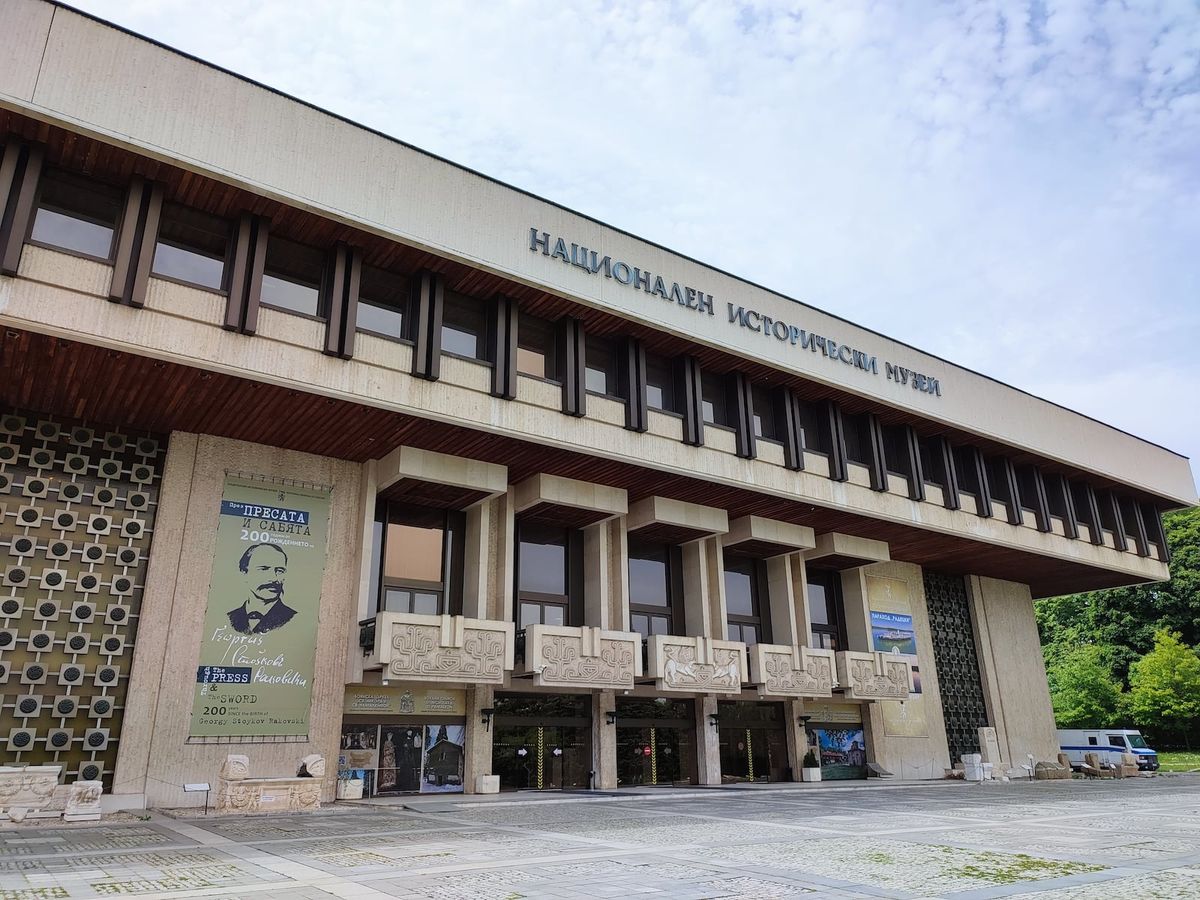
Disclaimer: if you are from Bulgaria, I hope you read this blog post with an open mind. Otherwise, if you have strong nationalist feelings, you may want to skip it. It’s not my goal to make anybody feel bad.
Today we visited the Bulgarian National History Museum. It’s located in the northern area of Sofia, quite close to the mountain. The massive (almost brutalist) building offers a sharp contrast with the natural surroundings. It’s a breathtaking view.
However, what impressed us more was the contents of the museum, or more specifically, the absence of certain content. Being the national history museum, one expects it to display most (if not all) periods of Bulgarian history.
However, from the humble origins of the stone age, and going through the Thracian and Roman Empire periods, after the middle ages, suddenly, time stops. You arrive at the stairs to the third floor, where a single poster briefly, almost reluctantly, describes how the Ottoman Empire occupied Bulgaria. Then, you go upstairs, and you find yourself in 1878, at the end of the XIX century.
A 500 years gap
From that moment on, the museum focuses on the heroes that, helped by the Soviet forces, reinstated the Bulgarian Empire. It’s kind of shocking. Half a millennium has been erased from the history of Bulgaria.
Ok, so nothing happened during those 500 years? Not even a slightly interesting or remarkable event to mention? Nothing?
After living for some time in Bulgaria, you realize the narrative here is that during those five centuries, Bulgaria was oppressed under the “Ottoman yoke”, or “Turkish yoke”. This narrative is clearly promoted by the institutions here, imprinted inside Bulgarian kids at school, and celebrated through different festivities, monuments, etc.
It’s kind of scary, because no occupation lasts for 500 years. The Ottoman Empire (whether they like it or not) is part of their culture and national identity, of who they are. No matter how hard they try, they can’t pretend it didn’t exist. It’s impossible that a ruling oppressor stays for five centuries without becoming part of that people, culture, etc.
It’s also kind of ridiculous. The Turkish (read, Ottoman) influence is so obvious in Bulgaria, it’s impossible to deny it. It’s in their food, art, culture, and (especially) in their music.
Spain was invaded in 711 by Muslim forces. They expanded throughout the whole peninsula and stayed for more than seven centuries. Ok, in our textbooks, when we refer to the year when we finally expelled those forces, we call it the “Reconquista” (re-conquest), but it’s a completely different story. We accept the fact that this period in history is part of who we are now. Even at school, I learned that those seven hundred years were a fantastic period of innovation and progress in mathematics, astronomy, engineering, art, and science, among others. In spite of an ethnocentric minority, in any case, we embrace that period as part of our national identity.
1984
But Bulgaria’s denial of this period, and its indoctrination of the population into this xenophobic view of that epoch through education, scares me. It’s a clear example of how nation-states manipulate us as individuals. Since we are born, we are exposed to this manipulation through our education, schools, governmental institutions, socio-cultural events, religion, family, etc.
I am not stating that those 500 years were a flourishing period of art, science, and culture in Bulgaria, probably it wasn’t. I am not stating that the Ottoman Empire was kind and fair with the Bulgarian population. Perhaps it was, perhaps not, I have no idea. But you can’t just “erase” it from your records like it never happened. Just like the Taliban destroyed the Buddhas of Bamiyan, but that didn’t erase Buddhism, you can’t educate a whole population to hate everything that sounds remotely Muslim, Turkish, or Arabic (well, you definitely can, but it’s not right).
That’s not healthy, even if it was a dark period. Germans are a brave example of the contrary. They refuse to forget the years of the Nazi regime. They know people who forget their history are doomed to repeat it.
That stairs that climb 500 years in a couple of steps reminded me of 1984. In the Orwellian novel, Winston Smith, the main character of the story, works at the “Ministry of Truth”, constantly rewriting historical records to make them conform to the ever-changing version of the history dictated by the Oceania nation-state.
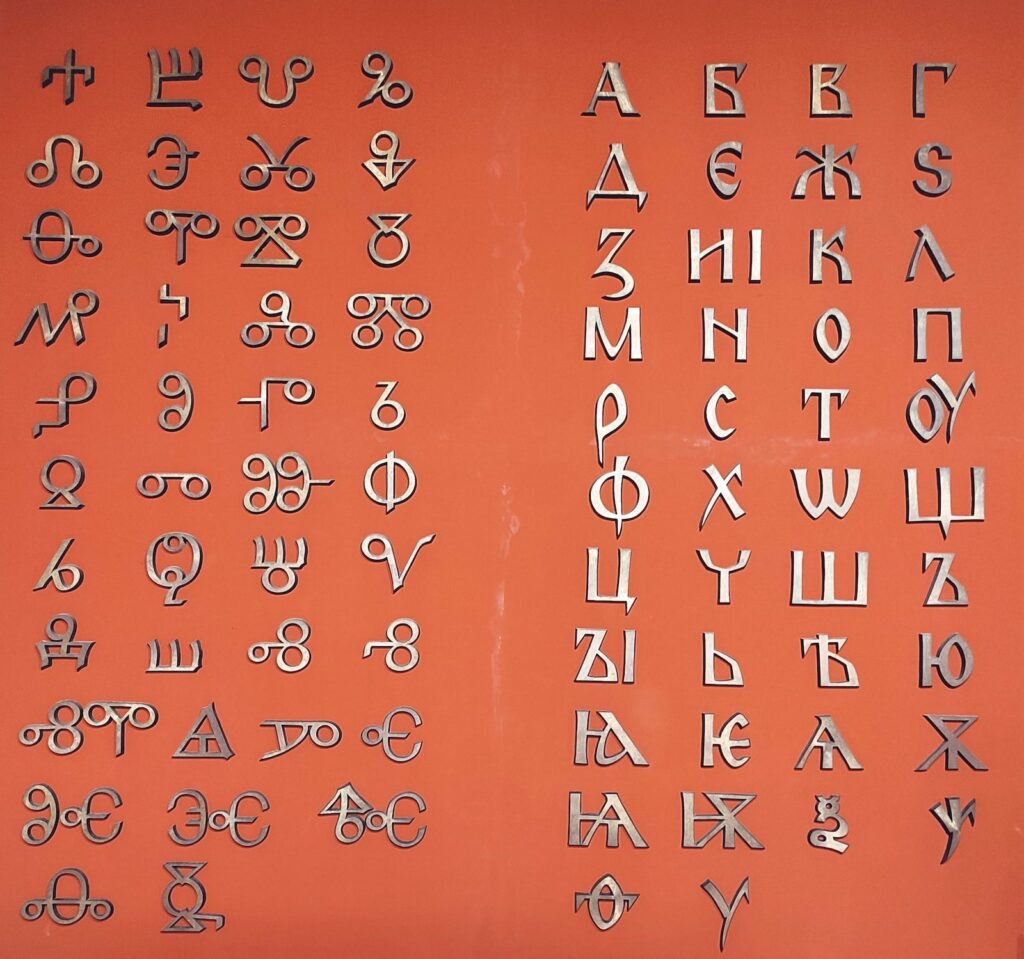
When nation-states, countries, and regions rewrite history to their liking
That dystopian future is more real than it seems. And every nation-state and region (even those which are not countries, but are trying to forcefully build their national identity) does it. There is no “good guy” or “bad guy”, only winners and losers. I was born after Franco, the Spanish dictator, died. During the dictatorship, minority languages (such as Catalonian, Galician, or Basque) were forbidden or repressed in Spain, but I can see the contrary happening now in Catalonia. Language is a powerful weapon to create sides and national identities.
A very creative film director I used to collaborate with went to live in Catalonia some years ago. He changed his name (which I will not include here to protect his privacy, but sounded definitely Spanish) for its “Catalonian” version, and started using that name everywhere, including all of his social media profiles, websites, and documents. That reminds me a lot of the forced “Bulgarianisation” of the names of 800k Turks described in this article. In this case, probably nobody “forced” him to change his name, but… Did he feel he would “fit in” better? Was he more comfortable? Societies always pressure individuals toward homogenization.
That makes me wonder how many preconceived ideas I have been fed with since I was born, and how many of them still survive today in me.
I am pretty sure that as soon as Catalonia becomes independent from Spain (it’s bound to happen, perhaps in 20-50 years), they will rewrite their whole history (they have already started to do it). Will they depict the period since October 19, 1469 (when Isabel I, queen of Castilla, and Fernando II, king of Aragon, got married, unifying their kingdoms and establishing the origin of modern Spain) as an “occupation” period of the Spanish forces in Catalonia (which was a region of Aragon at the time)? Will they refer to these 550-600 years as the “Spanish yoke”?
And more importantly, will they escape the “Spanish yoke” to fall prey to the “Catalonian yoke”?
The time of the nation-state has passed
I strongly believe the concept of “nation-state” is bound to disappear. And I will not mourn its death. That may sound like a bold statement, but remember that countries didn’t exist as such until a couple of centuries ago, which is, in historical terms, quite recently.
Even the roman empire collapsed and, as James Dale Davidson and William Rees-Mogg predict on The Sovereign Individual, modern nation-states will someday end. They perhaps got too overexcited about the date. It’s not probably going to happen in the next decades, but the writing’s on the wall. Movements such as digital nomadism, globalization, and the digitalization of our societies (that they also predicted) are making them more and more irrelevant and outdated every year.
Don’t fall prey to the Ministry of Truth
Cutting ties with your home country and becoming a perpetual traveler gives you the gift of free-thinking and independence. When I hear a story now, I know I need to also listen to the other side. Stories (and history) are written by winners, and re-written and re-interpreted multiple times. Just as Winston Smith did for the Ministry Of Truth in the Orwellian novel.
Don’t believe something just because that’s what they taught you at school. Don’t believe your mom, your teacher, your government, or your friend, just because you trust and love them. They’ve been subject to the same indoctrination. Apply a healthy dose of skepticism to everything you see, hear, and read. Do your research, listen to the other part of the story, to someone with a different political point of view, someone of a different ethnic origin. Look around you, see what’s so obvious in the picture that almost hurts, and (especially) see what’s missing.

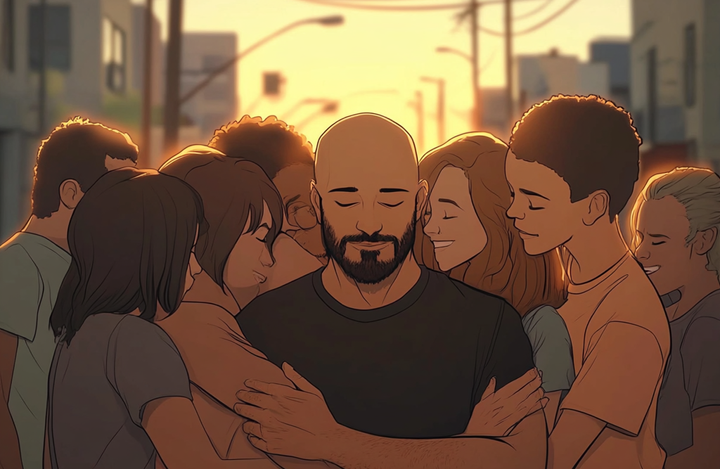
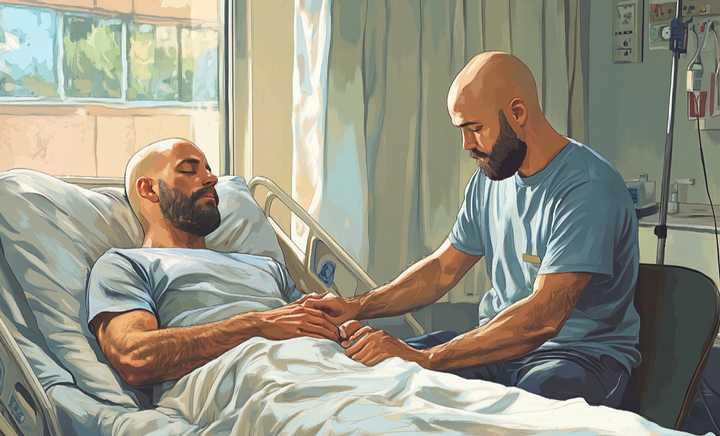
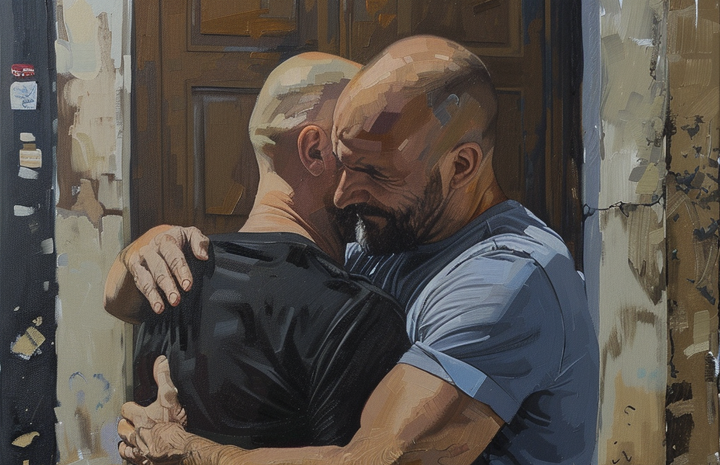
Comments ()